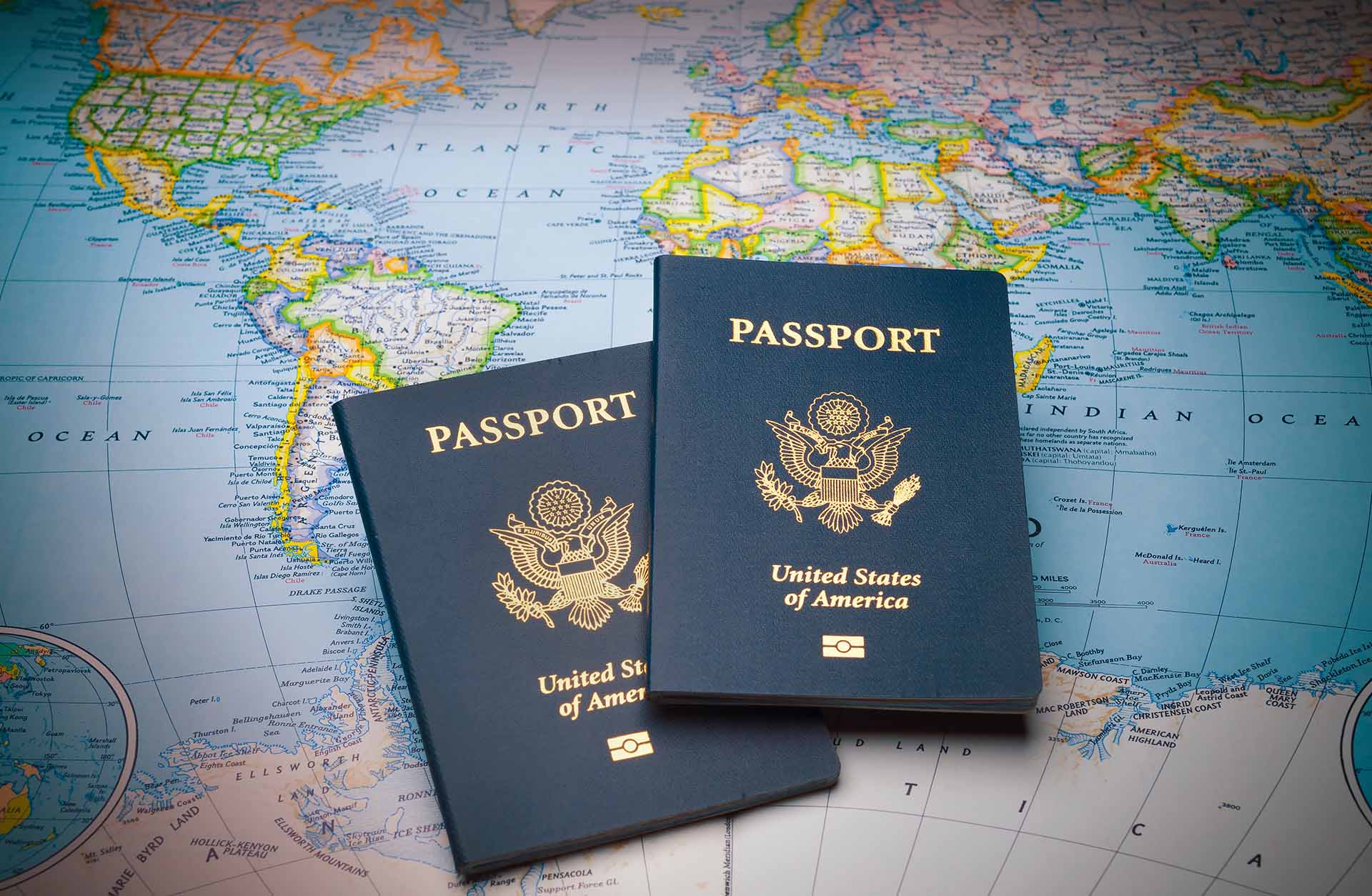If you are considering moving to Vienna, you aren’t the only one. About 1,7 million people of foreign descent live in the country, and a bit over 10,000 of them have a US passport. There is a reason why so many people move to Austria, and especially its capital. Not only is it a beautiful place, but one with the highest quality of life in the world too.

What Do I Need to Know Before Moving to Vienna, Austria, From the US?
Vienna is the capital of Austria and has been a capital even in the time of the Habsburg empire. So, you can bet that it is a European city with a long tradition and deeply rooted culture, yet simultaneously it still manages to be multicultural and lively. Wien, as it’s pronounced in German, the new language you’ll learn if you plan on relocating here, lies on the river of Danube and is located in the east part of the country. Today, the city is in the European Union, which you would immediately notice since you’d be paying in euros. It is home to around 1.9 million people, among which used to be renowned figures like Sigmund Freud, Egon Schiele, Mozart, and Beethoven.
Vienna Has Been Deemed the Best City for Life in the World
So, should you move to Vienna? Well, if there is any chance you might be moving internationally to the no.1 place to live in in the world for more than a decade, you should definitely take it! The International consulting firm Mercer carries out a comparative study of quality of life in 231 world cities, and Wien has had quite a long winning streak since 2009.
This is because the city is not only extremely safe, has a wide range of activities and immersive culture, as well as a good political and economic climate (and the weather ain’t that bad either). Additionally, it has great health care and a strong infrastructure. That being said, your strive to hire the first overseas moving company and start your life there is completely understandable.
#1 Getting Austrian Permanent Stay Isn’t as Easy as It May Seem
Upon hearing even the tiniest bit on the Austrian Capital, many people wonder: how can I move to Vienna, Austria? Choosing the best time of the year for moving overseas is never easy, however, the visa process can be quite straightforward. If you plan to relocate there for a period longer than six months, you’ll have to think about bureaucracy well before you move. To be able to move across the world to the beautiful Habsburg Capital, you’ll have to obtain either a permanent residence or citizenship, and here’s how to go about getting the two.
How to Obtain a Permanent Residence?
To become a permanent resident, you have to meet a few standards. Apart from having valid documents needed to travel abroad, having paid the fee of 210 euros, have documents, such as marriage, birth certificates, health insurance, and the like, you should make sure you fill out the following criteria to obtain a permanent residence:
- You’ve had an uninterrupted legal status in Austria for five years,
- During this time you’ve been self-sufficient, whether through a stable job or a different way,
- Had health insurance over this time,
- Had registered accommodation for this period,
- Didn’t pose a threat to security or public order,
- Have at least a B1 level of German.
How to Obtain Naturalized Citizenship?
While the long-term residence isn’t the hardest one to get, when it comes to citizenship, the story is somewhat different. Unfortunately, having both Austrian and a US citizenship isn’t possible unless you obtained both by birth. However, to become a naturalized citizen, you’ll have to fill out the following requirements:
- You’ve lived in the country legally and continuously for ten years,
- You’ve behaved according to the law over the decade,
- You’ve been self-sufficient over the period,
- You have knowledge of the culture and history of each province of the country and have learned the language.
For any additional information on becoming a long-term resident, or naturalized citizen of Austria, we recommend contacting the Austrian embassy or consulate near your current address.

#2 Vienna Is Actually Quite Affordable in Comparison to Its Standard
Are you wondering: is it expensive to live in Vienna? Well, compared to other large European capitals, Vienna is definitely a more affordable one. The monthly cost for a single person is about $870. These costs exclude the rent price and monthly utilities. But given that the country is the 14th richest country in the world, the living costs are more than affordable, especially in comparison to those you’d need to gather if you were to relocate to Sweden or a similar Scandinavian country.
However, if you are worried about balancing your finances abroad, you shouldn’t be, especially if you manage to get a job in Europe as an American prior to your move, since the average net wage amounts to €2,973 and will cover all of your expenses without problems.
A Lot of People Live in Subsidized Apartments With a Lower Rent Cost
Finding affordable housing is completely manageable. Not only are apartments generally beautiful, with high ceilings, parquet floors, and spacious rooms, but the rental costs fall well below the US standards for living costs. The average monthly rent and bill go for about €350-400 for a shared apartment, which translates to $400-500 a month approximately.
Did you know that about 60% of the Viennese reside in subsidized apartments? However, social housing is not available to those without a legal residence of at least five years. But, it is wonderful to reside in a place where housing is deemed a right and has been for years on end. On that note, while you probably won’t be able to rent an apartment in the historical housing complex Karl Marx-Hof built in the late 1920s, we do recommend visiting this Red Vienna housing landmark. The long building of over 1,300 apartments is still home to people who pay a subsidized rent cost of about 361 euros for 95-square-meter apartments.

#3 Every Bezirk Is Specific in Its Own Way
This city is a place of districts, and choosing the right one is important. The Bezirke, or districts, all have their names and numbers, and each of them has its own specificities and lifestyle, too. Here are some of the most popular ones when it comes to making the decision where to live in Wien:
- Mariahilf (the 6th) and Neubau (the 7th) – If you want to reside in hip, cool neighborhoods that are still in the center, the 6th and 7th bezirke are the perfect options. While the rent might be higher in these areas, you’ll get to walk cobblestone streets on your way to morning brunch or while taking a short walk back home from the night out.
- Margareten (the 5th) and Favoriten (the 10th) – Perfectly located, these bezirke are most known for their multicultural feel due to a large number of expat communities and very attractive rent prices. Here you’ll get to enjoy Turkish and Balkan food, shop in local shops, and leisure in amazing green spaces all the time.
- Hietzing (the 13th) and Währing (the 18th) – If you are relocating with a family and want to experience a lush suburban life, these neighborhoods are going to provide you with everything you need. A calm life amidst the vineyards, you can look over your white picket fence.
- Leopoldstadt (the 2nd) and Innere Stadt (the 1st) – Living in the historical districts is more expensive than renting a small apartment anywhere else in the city. However, there are perks to living in the center and walking its narrow streets to the city’s most famous parks.

#4 You’ll Need a Work Permit, But Getting a Job as an Expat Is Manageable
The main reason for relocating to the Austrian capital for most folks is the employment opportunities. However, the offer of jobs for Americans is not the same in each sector. Most commonly, people will either go for a job in the service sector or try out employee relocation as essential workers, especially in medicine. Additionally, English teachers are in demand in the country generally, especially those whose native language is English.
Although there are a lot of those who are already in this job market, securing a position with good qualifications won’t be difficult. What’s even better is that you’ll secure a work visa and be able to talk without breaking the language barrier as soon as you move. If you want to look for a job before the move, we recommend checking out websites like Jobrapido, Monster, or Jobs in Vienna.

#5 The History of Red Vienna Allows for Available, High-Quality Public Amenities Today as Well
The history of Vienna even today leaves its distinct mark on the amenities in the area. In the 1920s and 30s, separated from Lower Austria, the city went on its own socialist-democratic political course, which is today most known by the name of Red Vienna. The idea of the municipal government was to provide its residents with adequate and available amenities.
While most of the attention was provided to housing, an effort was also made with urban planning, healthcare, education, and transport. For this reason, all of these amenities are well kept and available to all citizens and residents at more than fair and generous pricing.
Healthcare in the Country Overall Is Great
The healthcare and social system in Austria are strong, so if you move here, you can expect high-quality medicinal services, as well as obtain them at generous fees. A person living in the country is rewarded with health insurance on account of their employment. However, a basic level of insurance applies to all. You can enjoy privately or publicly funded care, although most residents are more than happy with the state-provided healthcare. The city’s biggest hospital is the General Hospital, and there are additional 13 health centers, each with a different specialization.
The Quality of Education Is the Reason Why Living Here With a Family Make a Lot of Sense
Austria generally is considered as having a great quality education system, which is also public and free. Between the ages of six and fifteen, all children have to take nine years of compulsory education in one of the great Viennese schools. Compared to other Austrian cities, the capital provides more options when it comes to higher and vocational education, pioneering even in new developments through constant effort. University of Vienna, TU Wien, and even Vienna’s University of Medicine are among not just the best rated in the country, but get high places on worldly rankings as well!
Moving Around Is Easy Thanks to Perfect Public Transport
Wien can definitely be considered one of the cities with the best public transport. You might travel around via trams, buses, and the U-Bahn, which is always on time (as are the rest of the vehicles, to be frank) and provides 24-hour service on the weekends. The annual ticket amounts to 365 euros or a euro per day, and in case you decide to on moving abroad to another country before the year is over, you can actually return your yearly ticket and get a refund! If you are a student or have kids who are in school, know that their yearly tickets will cost much less due to the subsidized nature of public transport.

#6 Wien Won’t Feel Like Home Until You’ve Done a Few Things
Wien wasn’t named the Capital of the world by chance – it is because it provides cultural experiences like no other. And if you want to experience it in its entirety, there are a few things you’ll need to experience.
- The MuseumQuartier – This block contains all the biggest city’s museums, in which you’ll be able to see anything, from first-class art, to ancient artifacts and even stuffed animal specimens.
- The royal palaces – Schonbrun, Hofburg, and Belvedere, are all wonderful palaces you should experience. Schonbrun has a wonderful park-like garden in which anyone can walk or jog, incorporating a bit of a royal feel into their daily routine.
- The Christmas Market – Drinking mulled wine and eating sausage in snowy December gets extra amazing next to a ski ring in the capital’s center. This annual manifestation brings in thousands of folks, both tourists and locals.
Viennese Coffee Is Not the Only Great Local Delicacy You Should Try Out
Food in Vienna is both affordable and tasty. However, since you won’t be able to buy any groceries after 8 PM or on Sundays (in every country, there is a cultural shock to overcome), the situation might leave you having to go around Vienisse restaurants and cafes. And other than the famous Viennese Melange, you’ll have to try out a few more things.
For example, you can’t say you’ve moved here before trying the signature Sachertorte in Hotel Sacher. And of course, if you need an entire meal, you should try the Weiner Schnitzer, followed by Apple Strudel as dessert. In the evenings, make sure you water it all down with a pint of beer. For more ideas on what to eat, drink, and where to go once you move, check out the following video:
Getting to the Habsburg Capital on the Danube Is More Convenient With the Help of an Overseas Shipping Company
After reading even the tiniest bit on Wien, hiring an international moving company and investing in their packing services seems like the next logical step. Rent a storage unit and make sure you’ve arranged to get your vehicle shipped overseas because you are in for a ride and to one of the greatest capitals in the world. It is calm, beautiful, safe, lively, and full of opportunities each step of the way, so it is the perfect place to relocate to efficiently. And the truth is that it’s such a wonderful place, you probably won’t even have to go through the usual rough phases of adjusting to a new country.








